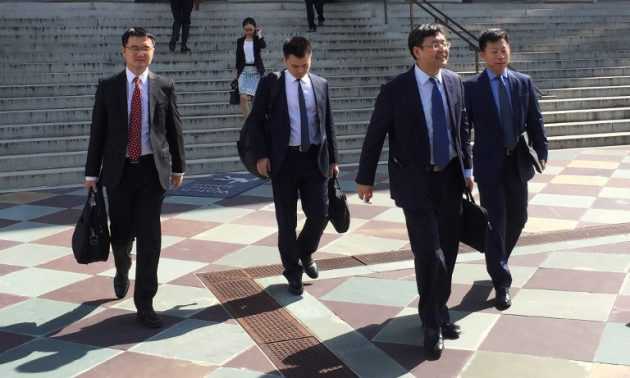Chinese vice-ministers heading to Washington ahead of trade talks
26 January, 2019

Planning remains on track for the most consequential US-China trade talks since a tariff truce was declared in December, according to a report on Friday.
Vice-Commerce Minister Wang Shouwen and Vice-Finance Minister Liao Min are set to arrive in Washington on Monday, Bloomberg reported, citing people briefed on the matter.
The Financial Times had reported on Tuesday, also citing anonymous sources briefed on the negotiations, that an offer from Beijing for the same two officials to visit Washington earlier this week was refused by Trump administration officials. But Trump advisor Larry Kudlow refuted that report, saying that no trip had been canceled.
Kudlow stressed that negotiations scheduled to take place on January 30 and 31 between US officials and Chinese Vice-Premier Liu He would be “determinative,” noting that President Donald Trump has been optimistic about the prospects of a deal. Treasury Secretary Steven Mnuchin later indicated that progress was being made in preparatory talks.
Despite some mixed signals sent by the Trump administration, including Commerce Secretary Wilbur Ross’ remarks on Thursday that the two sides are “miles and miles” away from resolving certain key issues of disagreement, optimism is growing that a deal of some sort will be achieved before a March 1 deadline.
Ross stressed that China must address structural issues such as alleged “forced” technology transfers and state subsidies, adding that it is even more important that China agrees to a binding enforcement mechanism for any pledges. His comments echoed the position of US Trade Representative Robert Lighthizer, who will be leading the negotiations on the US side, along with Treasury Secretary Steven Mnuchin.
Mnuchin’s involvement, along with optimistic comments from Trump, has led to speculation that the two sides could strike a deal in which the US backs down on its demands that China agree to wide-ranging changes to its domestic policy.
Such a deal could see a de-escalation in the tit-for-tat tariff battle in exchange for increased Chinese purchases of US agricultural and energy products, while also leaving open the possibility of further negotiations on more contentious issues down the road.
On two separate occasions in the spring of last year, deals that would have seen China increase purchases of US goods but that avoided the demands for structural changes, looked all but final before being vetoed by Trump.
But since then stock market turmoil and speculation that an economic recession is looming on the horizon have led some to believe Trump has changed his assessment of negotiations. When commenting on trade talks with China, the US president has consistently cited the strong US economy and stock market performance as reasons the US can withstand a prolonged trade conflict.
TAG(s):
